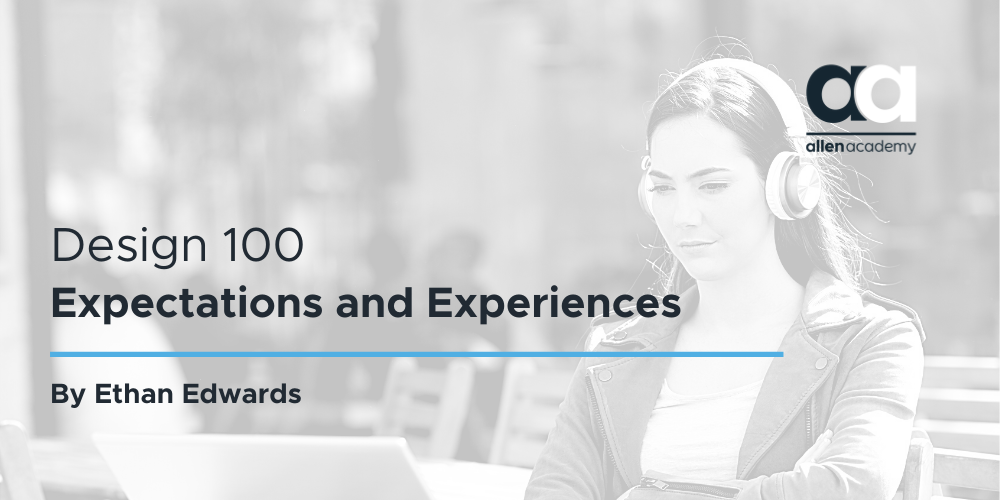Design 100: Expectations and Experiences

By Ethan Edwards
Design 100 participants have stated how fundamentally this experience can change your whole set of expectations of what is possible through e-learning.
Many years ago when I was in college, there was a period of time when I was trying all sorts of new things in the kitchen. I was in my first apartment and for the first time in my life had the opportunity to cook for myself. I tried making some of my favorite foods that my Mom had made for use while my siblings and I were growing up, and I was able to achieve some success.
As I gained experience and confidence, I would sometimes try to make something unfamiliar that was described in my cookbook. It was really an odd phenomenon: I would make something I had never seen or tasted before, and when I was done, I had no idea whether I had succeeded or not.

For example, I tried to make a soufflé once. It sounded exotic and delicious. I had never had one. I did know from episodes in vintage TV shows that you weren’t supposed to slam the oven door, lest the soufflé would fall (whatever that meant!).
Well, I ate the soufflé. It seemed fine as best as I could tell. It was edible, at any rate. I made another one a few weeks later and it was pretty much exactly the same. Have never made one since because it wasn’t good enough to bother with.
A few years later I was served an actual quality soufflé and it was only then that I realized that what I had created was HORRIBLE. It had all the same ingredients and took sort of the same appearance. But where this good soufflé was airy and savory and delicious, mine was dense and bland and rubbery. Yet I had thought it was ok; probably because I really didn’t have any idea of the actual nature of a successful soufflé. It’s way more than eggs and cheese, but I didn’t know.
Unfortunately, I think a lot of e-learning development has much in common with my soufflé baking. I created something that was inarguably a soufflé. e-Learning teams create all sorts of modules that are inarguably e-learning; the problem is they are terrible. And worse, so few people have ever seen really good e-learning that we never find out how far off the mark we are.

One of our highest priorities at Allen Interactions is to elevate the field of training programs and of e-learning in particular. One of the most valuable experiences we have discovered, before you start writing content or manipulating a development tool, is to have a firm understanding of the particular strengths that e-learning and digital technology bring to the learning environment, the essential characteristics of successful e-learning, and the key design elements that are absolutely necessary to bring to the table as a designer.
We are offering an ideal course to lay the foundation through the Allen Academy: Fundamentals of Design for e-Learning. Time and time again, participants have stated how fundamentally this experience can change your whole set of expectations of what is possible through e-learning, and how you can begin to design modules that are extraordinary in their ability to engage the learner’s mind and achieve performance goals.
